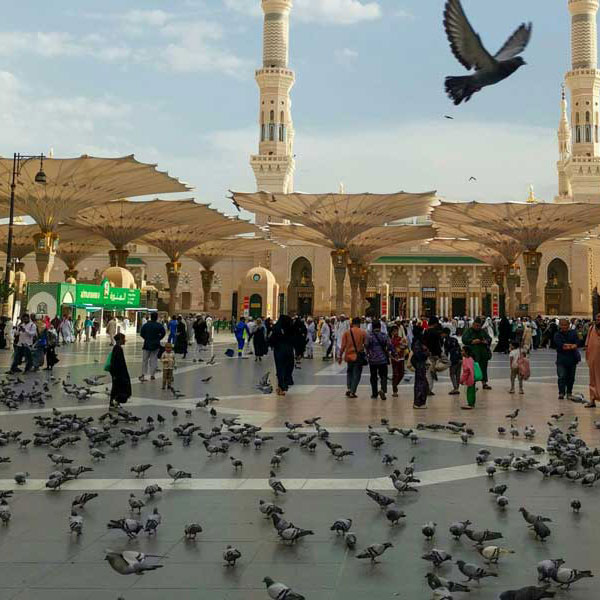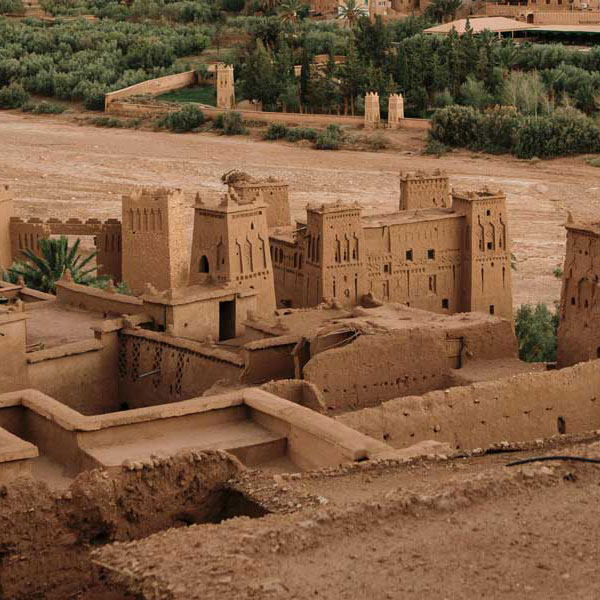
When Role Models Fall from Grace
Laura El Alam Like so many converts, when I was a brand new Muslim, I was trusting and optimistic. Inspired by the beauty and perfection of Islam, I expected that all the “born Muslims” around me would be living upright, wholesome, pious lives. After all, they had been raised with Islam as their blueprint, and the Prophet (peace and blessings be upon him) as their role model. With the benefits of lifelong guidance and inspiration, I reasoned, how could they display anything but excellent behavior? I was so enamored with my newfound faith and so eager to think the best of my sisters and brothers in faith that I forgot about one inevitable reality: human weakness. Islam is perfect, but humans are not. In fact, every single one of us is a sinner. Anas ibn Malik reported: The Prophet, peace and blessings be upon him, said, “All of the children of Adam are sinners, and the best sinners are those who repent.” (Tirmidhī 2499) If you are a new convert, you may feel deep admiration for certain individuals who taught you about Islam. Perhaps it was your spouse, a co-worker, or a friend who introduced you to the faith. Maybe you started following a lecturer online because you were deeply impressed by their knowledge and charisma. Or possibly some congregants at the local mosque seem to be amazing people with outstanding character, and you’re thrilled to be in their presence. Having role models is not necessarily a bad thing, of course. A problem arises if we take our admiration a little too far. We sometimes put people on a pedestal, forgetting that they, too, are flawed human beings. We might start thinking of certain individuals as more than mentors and teachers, attaching our hearts to them, connecting our faith to them, and expecting them to be perfect. Then, when these people make mistakes or commit grave sins, it can be extremely painful. It might even shake the foundations of our iman, or belief in God. If we find ourselves feeling devastated or having a spiritual crisis when a beloved role model falls from grace, that is a sign that we have put too much emphasis on that person, and not enough on Allah and His deen. We probably did not intend to form an unhealthy attachment, nor set out to worship someone other than Allah. But if our disappointment in a fellow human being’s transgressions hurts us to our core, it is a clue that we have formed an unhealthy or inappropriate attachment to him or her. As Yasmin Mogahed explains, “Pain is a pointer to our attachments. That which makes us cry, that which causes us the most pain is where our false attachments lie. And it is those things which we are attached to as we should only be attached to Allah which become barriers on our path to God.” How can you cope with being shattered when your Muslim role model lets you down? Constantly remind yourself that only Allah is perfect. His prophets, the best of humanity, were infallible in regards to sin, but still mortal and fragile creations. Because humans have free will and are inherently flawed, we will all fall short of our faith’s high standards now and then. But our mistakes are not His mistakes, nor are they indicators that something is wrong with Islam. Continually refresh your personal connection with Allah, the Quran, and the Prophet (peace and blessings be upon him). We are all part of the Ummah, a community of brothers and sisters in faith who should support and protect one other. Bonding, interacting, studying, and worshiping with fellow Muslims is generally beneficial. But remember that in Islam, you don’t need an intercessor between you and God. You are already– and always– close to your Creator. He tells us in the Quran: “Indeed, it is We Who created humankind and fully know what their souls whisper to them, and We are closer to them than their jugular vein.” (50:16) Remember that tawheed, worshiping Allah alone, is Islam’s central and single most important concept. Always check the compass of your heart and make sure it is pointing towards Him alone. Don’t over-generalize. The human brain is predisposed to learn negative stereotypes, but remember that just because one individual does something disappointing or harmful does not mean that all Muslims are like that. For instance, in cases when a well-known Islamic scholar is exposed for his sins, people often begin to suspect or distrust all scholars. They may even over-generalize so much that they begin to doubt Islam itself. Be proactive to avoid unhealthy attachment in the first place. One step is to adhere to Islam’s gender segregation rules. There is great wisdom in enforcing a distance (both physical and emotional) between men and women who are not mahrams. One-on-one chats and lessons, whether in person or online, can easily devolve into flirtations or prohibited relationships. If you are seeking Islamic knowledge, it is best to find a teacher of the same gender. Learn Islamic knowledge from various sources. If all of your information comes from one person, you will be more dependent on him or her and more likely to suffer a huge spiritual blow if their sins are exposed. There are innumerable resources, online and in-person, to learn about Islam and plentiful scholars of both genders. So, diversify your learning. Allah created humans as social beings. We are predisposed to seeking meaningful connection with others, and our hearts can feel profound emotions. There is nothing wrong with loving and admiring people within the boundaries of Islam, but we must always remember that ours is a religion of moderation. We should strive to keep our hearts from feeling too attached to anything in this dunya (worldly life). After all, everyone and everything on Earth will eventually perish. The only permanent One is our Creator. He is the only one who will never, ever let us down and He is the only One worthy of our devotion. Read Other Articles on whysialm.org










